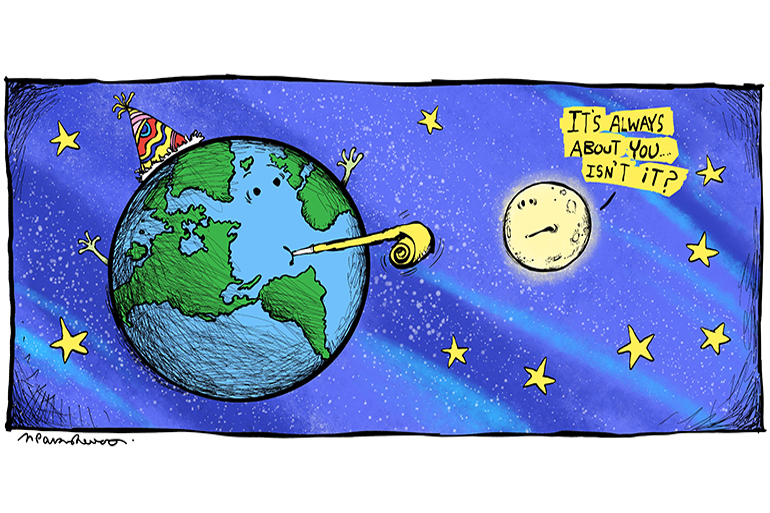About Us: It’s Warm Now and Getting Warmer Still, Unless We Go Back to the Old Ways

In spite of fake news, religious beliefs, cowardice and stupidity, it is clear today that the temperature of the earth is dramatically rising in response to the crap that we throw up into the atmosphere. You can see this crap every day, in the cars idling in traffic jams, the planes flying overhead and in the garbage patches floating in the oceans.
The gasses this cocktail of crap sends up there stays in the atmosphere, and as sunlight comes in it bounces off the earth and goes back up but then cannot get out because so much of these greenhouse gasses is blocking it. In simple terms, it’s something like what happens when you shut all the windows on your car on a hot day and leave it like that for a while. But not exactly. The greenhouse gasses do not dissipate.
The gasses responsible are CO2, methane, nitrous oxide, ozone and halogenated gases—all of which we have been producing in ever-increasing amounts since the beginning of the Industrial Revolution.
A common misunderstanding of all this is that if we use an electric car, ban plastic straws, drive less and throw hotel towels on the floor “to save the planet,” as the sign always says, we can cause the greenhouse gasses to go down. The fact is, and I don’t understand why this isn’t understood, the greenhouse gasses will not go down if we do these things. They will continue to go up, but slower.
The greenhouse gasses we have today are the lowest they will be after today. Tomorrow they will be higher, and the day after that, higher still. The greenhouse gasses have nowhere to go. The tornadoes, fires, hurricanes, tsunamis and floods we have today are what the planet has responded with, SO FAR. It will never be less, unless we do two things, but more about this later.
On the radio this morning, I heard a commentator, supposedly knowledgeable, urging action and saying this is not this generation’s problem but the next generation’s problem, “when global warming will be at its peak.” It will never peak, it will only go up, until we do these two things. The first will only stop it from increasing. The second will defeat it and bring it back down.
Here’s the one that will stop it from increasing. It is going to sound preposterous and impossible, but this is what we must do.

We have to go back to living as we did in Colonial times, before the invention of the steamboat or gun power. We have to unwind the Industrial Revolution. Alternately, it might be possible that by using wind, solar, nuclear and wave power, we can continue on as we are without further damage. I think the Paris Agreement might have paved the way, although it does not mention stopping it entirely, just reducing it so it gets worse slower. Every country was assigned signposts to gently transfer how it produces energy, aiming toward a goal of this massive carbon reduction.
But so far, and we are four years since the agreement, there don’t seem to be many who have met these signposts along the way. And America has withdrawn from Paris, an absurd gesture, considering everything. Also, as I said, reduction won’t do it, it will only slow the increase. Furthermore, nobody drafting the Paris Agreement spelled out obligatory financial punishments for not achieving the signposts. Modern industrial life is indeed very fun. And everybody thinks that they can get everybody else to do the dirty work.
A second possible thing we can do will indeed result in a decline and eventual disappearance of the greenhouse gasses in the atmosphere. And though it is much simpler, so far nobody has shown the slightest interest in this. Politicians around the world have failed to seize this. Amazing.
An international effort needs to be made by scientists to find chemicals we can send into the atmosphere to neutralize the greenhouse gasses up there and render them harmless. It could be by a chemical reaction. It could be a kind of sweeping-up what’s up there, but it must attack what’s up there and put an end to it. The neutralized gasses could be fired off into space, or brought back to earth and, if in solid form, buried. It could also be accomplished by something much less complicated—a massive reforestation effort (since trees take in carbon dioxide and emit oxygen). It could be a combination of things.
This seems impossible. Or is it?
We really have no choice. I’ve read that during the 1980s our federal government set aside $20 billion every year to give out to victims of natural disasters to use for restoration and rebuilding. In 2018, this was about $95 billion. Soon it will be $200 billion, then a trillion. How much do we have to spend before we realize we have to deal with the cause of the problem before it rises to a point when we simply can’t afford to keep patching things up?
Making this effort is therefore money well spent. And we have precedents for doing this.
In 1940, the United States government made the decision to produce huge quantities of military guns, vehicles, ships and planes. Hitler’s armies were 10 times more powerful than any other armies in Europe. Our goal was to produce an army 10 times more powerful than Hitler’s. Everyone rolled up their sleeves and pitched in. For five years, everything was about the war effort. Auto manufacturers quit making cars—there were no cars made from 1942 to 1945—and instead they made tanks, guns and planes. It succeeded because if it didn’t, we would have died under the Nazi guns.
In 1941, the United States made the commitment to harness atomic power and produce a massive weapon that could end the war everywhere. It created a laboratory complex in the mountains of Tennessee, and in five years it was accomplished.
The United States government made a decision in 1961 to send men to the moon before the conclusion of that decade. It was a huge financial effort. And it succeeded.
We made a commitment to find a way to fight the AIDS epidemic and we are succeeding. We have made a commitment to cure cancer. It has not succeeded, so far.
This new effort to neutralize the greenhouse gasses would have to be the biggest effort ever undertaken. It must be undertaken by not only the United States but also by China, Japan and every other industrialized country. And it must have teeth—massive financial penalties to those countries that continue to flaunt the signposts of the first effort, the Paris effort, all to be spent on this second effort. It could be a United Nations sanctioned effort.
This is not about saving the planet. The planet will be fine, spinning around the sun for billions more years. It might even evolve new creatures who survive in the overheated environment. It has happened before. This is about saving us.



